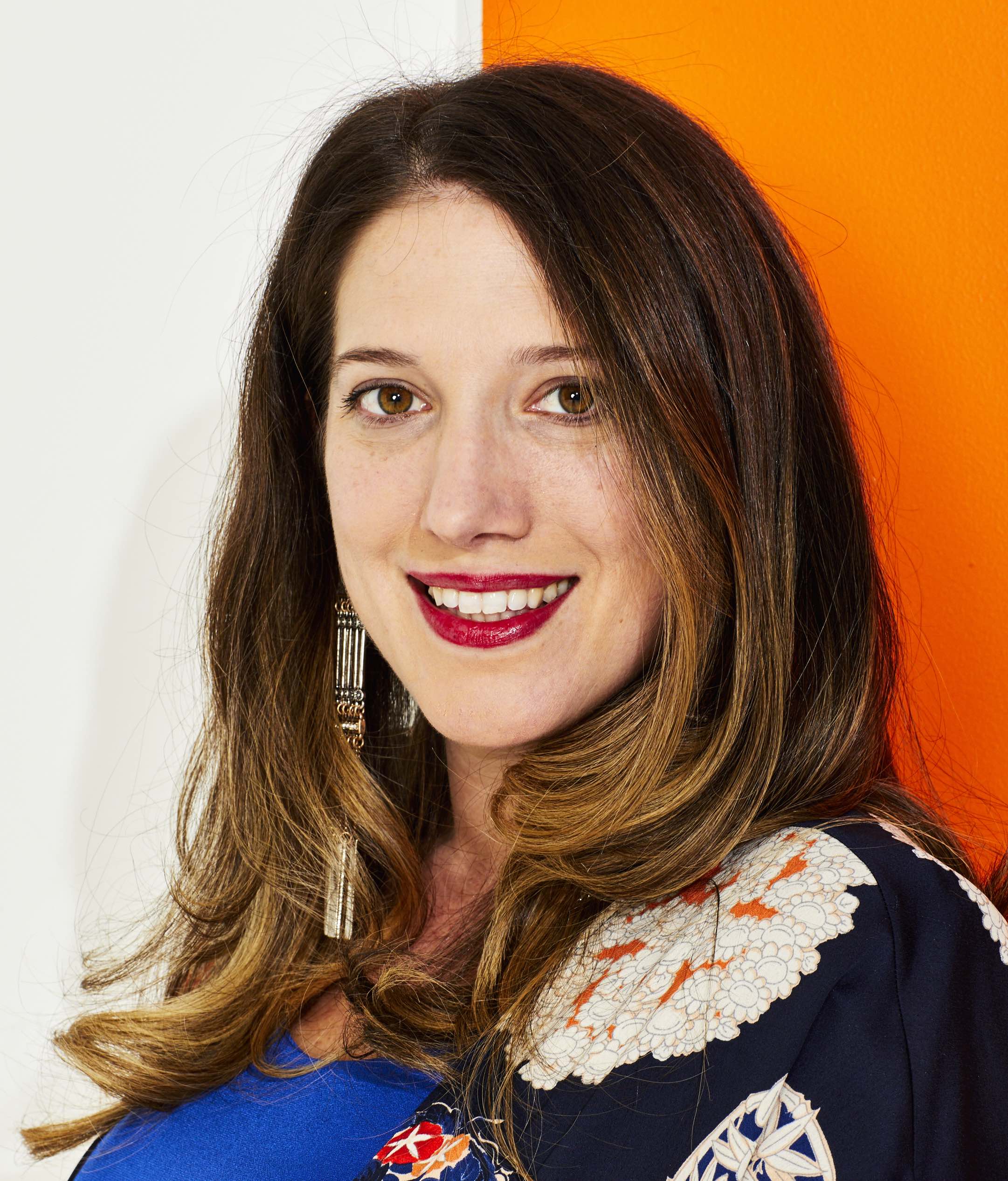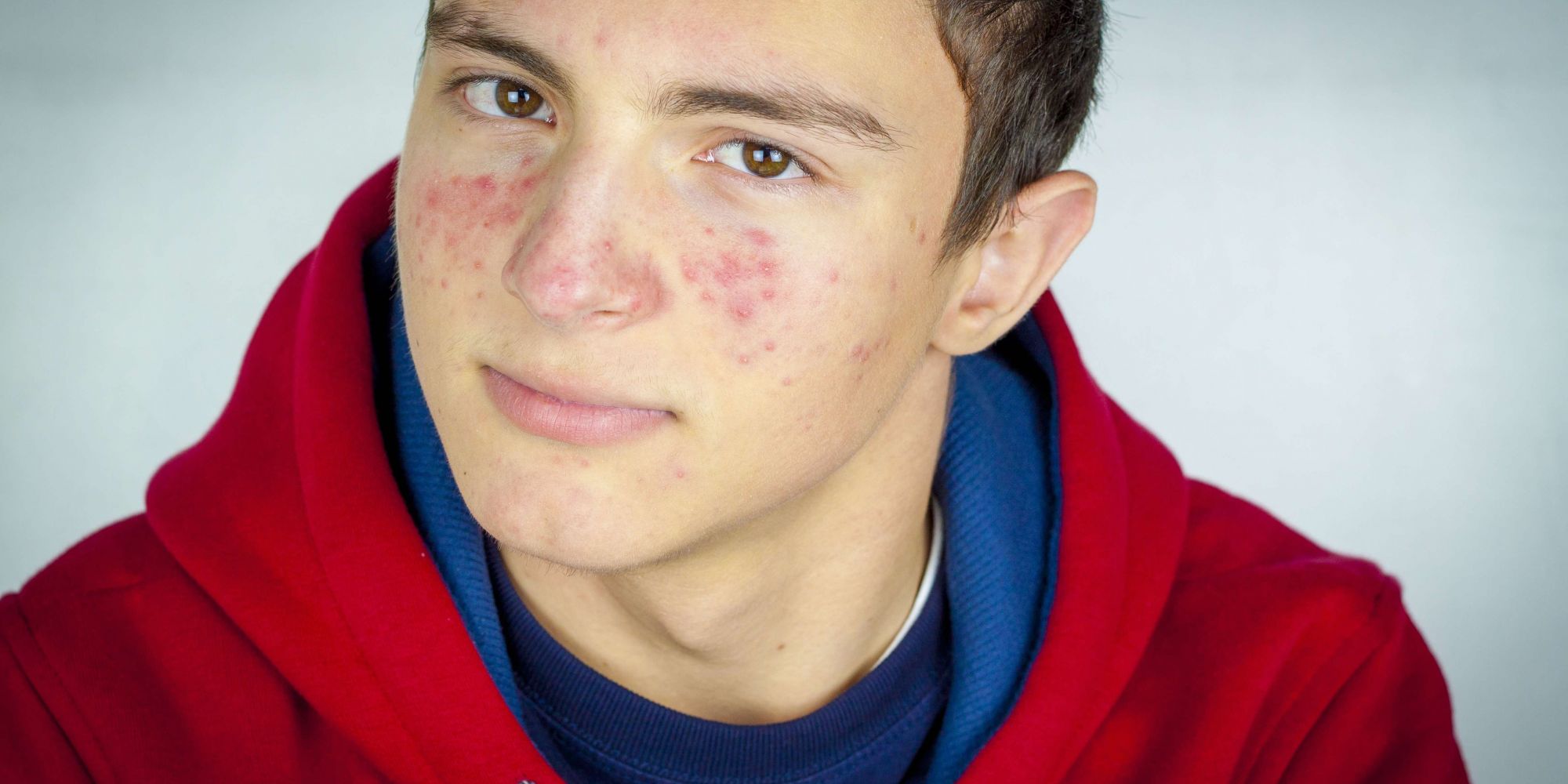
Is The Skin-Positivity Movement Putting Acne Solution Brands In A Spotty Situation?
When Ju Rhyu, co-founder of Hero Cosmetics, first brought her Mighty Patch acne stickers to market last September, she was concerned no one would post about the product on social media, a potential kiss of death for any new beauty brand.
“My worry was that, in this day and age of the perfect Instagram image, I wasn’t sure people would want to talk about acne and pimple treatments,” she says. “It’s not a very sexy topic or an aspirational image.” Her fears turned out to be unfounded. Less than a year later, Hero Cosmetics is on track to do seven figures in annual sales, fueled to a large extent by social media buzz.
In honor of Acne Awareness Month, which is marked in June, the brand is doubling down on its social media efforts. “We’re giving [the awareness campaign] a makeover by calling it #fightacnemonth,” details Rhyu. “We’re doing a big giveaway of Mighty Patch samples on our website as well as getting influencers to share their battles with acne and their solutions on social media to make it more acceptable. Part of what we were trying to accomplish is to make it OK to talk about it and show the imperfections of our skin.”
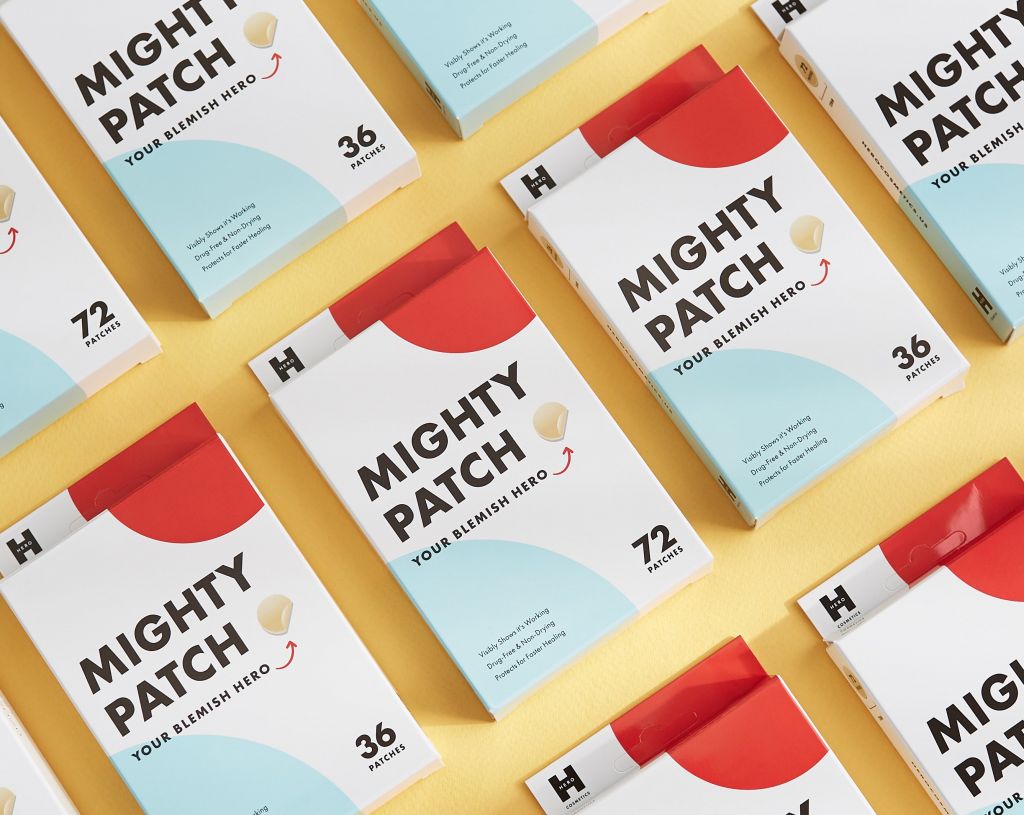
That messaging and Mighty Patch’s surprising social media success coincides with the burgeoning skin-positivity movement that’s been gaining momentum on Instagram. Bolstered by celebrities like Kendall Jenner and Lili Reinhart, both of whom have openly discussed skin issues on the platform, the campaign is working to destigmatize blemishes by encouraging the 40 to 50 million people in this country struggling with acne to post their bare-faced photos, pimples and all. It’s akin to the body positivity rallying cry, albeit with substantially smaller numbers (#skinpositivity has been used roughly 2,300 times on Instagram as compared to #bodypositivity’s 1.8 million velocity).
“There’s a growing community of people who want to see and share more messages of authenticity, which means splotchy skin, bags under your eyes and, yes, pimples and dark spots,” says Rhyu. “When I see celebrities like Ruby Rose who get acne-shamed and influencers who always have to put their best face forward to live that aspirational life, I think it creates too much pressure, and we’re now seeing a push in the other direction, a message of skin positivity not skin perfection, which is great.”
“There’s a growing community of people who want to see and share more messages of authenticity, which means splotchy skin, bags under your eyes and, yes, pimples and dark spots. When I see celebrities like Ruby Rose who get acne-shamed and influencers who always have to put their best face forward to live that aspirational life, I think it creates too much pressure, and we’re now seeing a push in the other direction.”
While the idea of loving the skin you’re in and appreciating its imperfections sounds terrific in theory, in reality, it could easily fly in the zit-laden faces of acne solution brands’ businesses. But Rhyu and other indie skincare brand founders argue the exact opposite is true. They’re adamant acne acceptance doesn’t diminish sales.
Take customized skincare specialist Curology. Dermatologist David Lortscher, founder and CEO, notes the company’s sales are increasing despite society’s budding tolerance of pimples and scars. “Although the movement has certainly begun to take off, our massive growth over the past few years seems to suggest that anti-acne skincare product sales are unlikely to decline,” he says. The same holds true for larger, more established brands and the acne sector as a whole. The market research firm IBISWorld’s figures show an acne treatment segment that’s in recovery. While U.S. sales in the segment dipped 2% annually from 2013 to 2018 to hit $586.4 million, sales are projected to climb 1.4% annually through 2023, when they’re expected to reach nearly $639 million.
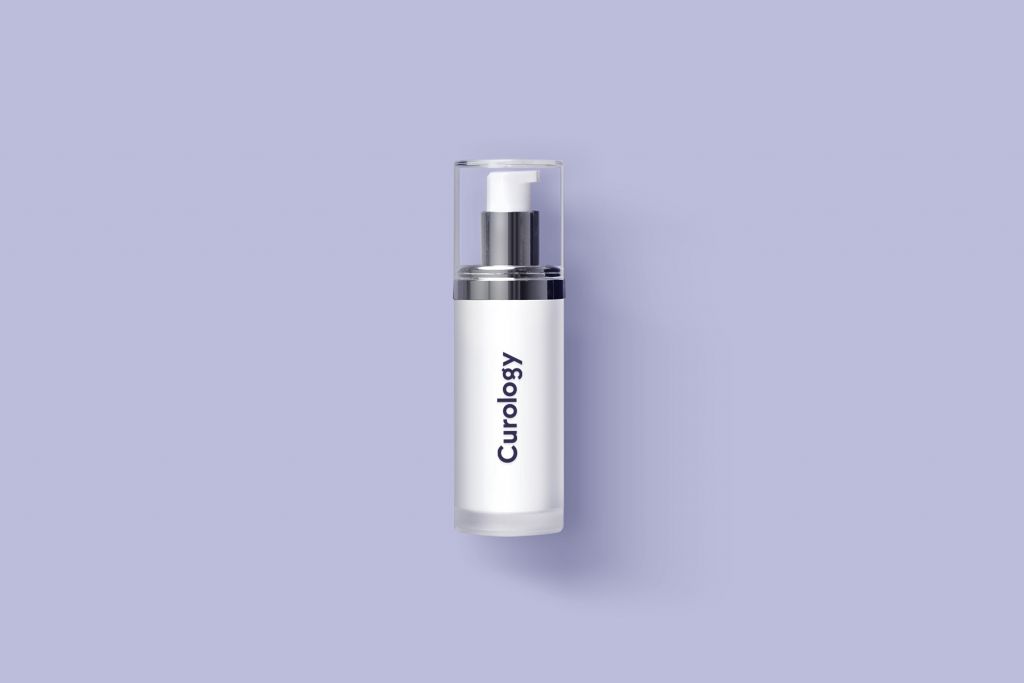
Lortscher attributes an increased interest in skincare to the wider wellness trend sweeping the globe. He elaborates, “To many people, feeling great about your skin means treating it with care, which explains why, quite similarly, body positivity hasn’t led to a decrease in fitness centers.” In other words, the skin-positivity movement emphasizes healthy skincare routines and, thus, drives product sales.
A study published earlier this year in the British Journal of Dermatology found that people with acne had a 63% increased risk of depression compared with those not dealing with spots. “We’ve heard how much acne and other skin conditions have affected our patients not just physically, but also psychologically,” says Lortscher. “We hope that the skin-positivity movement will help lessen the emotional impact of skin conditions and will continue to support that message in our communication with the Curology community.”
“It’s actually totally against the grain to be a skincare company encouraging people to accept their skin the way it is. It was risky when we did this in the beginning and, even today, it’s still very rare. Ultimately, authenticity is a value of ours. We never want to market to this idea of perfection.”
Some brand founders know the pain of acne personally, a knowledge that underpins their attitude toward skin confidence. “We’ve always promoted skin acceptance because that’s my story. I still deal with acne and hormonal breakouts, and I’ve never hidden my real skin from our community. That’s super important to me and our company,” says Priscilla Tsai, CEO and founder of skincare brand Cocokind. “I don’t think of this as a good business decision, though. I think of it as a good message we are spreading. It’s actually totally against the grain to be a skincare company encouraging people to accept their skin the way it is. It was risky when we did this in the beginning and, even today, it’s still very rare. Ultimately, authenticity is a value of ours. We never want to market to this idea of perfection.”
Curology is so committed to the skin-positivity movement that it has purposefully inserted itself into it. “We think embracing real skin is great. Flaws are part of what make us real,” says dermatologist David Lortscher, founder and CEO. “At Curology, we’re part of that skin- and acne-positivity movement by supporting our community’s individual skincare journeys. In turn, our members are excited to engage and show us their progress by tagging the brand @curology regularly.”
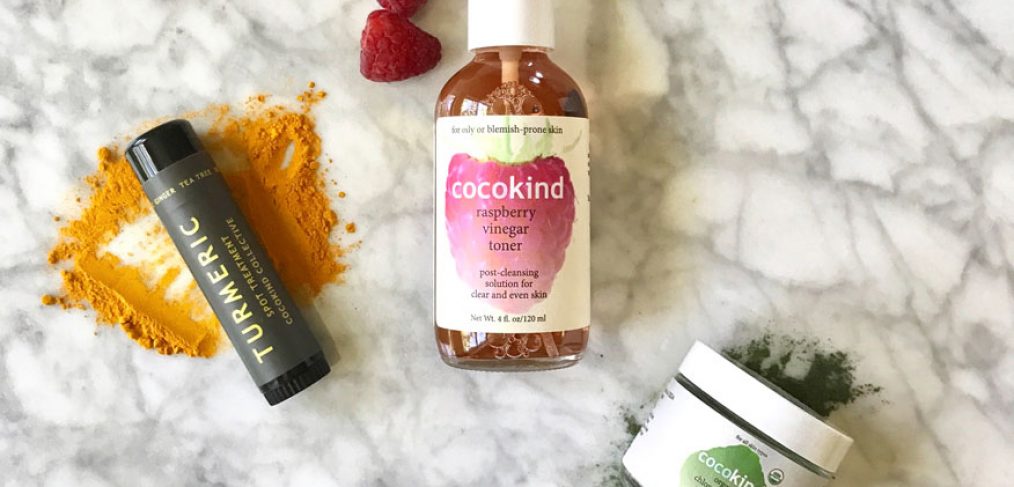
The nature of acne products is shifting as the skin positivity becomes mainstream. Take the hydrocolloid zit-zapping stickers sold by Hero Cosmetics and Korean brand CosRX, for example. They’ve made the leap from K-beauty staples to American beauty lovers’ bathroom cabinets, but there’s still a stigma attached with wearing them during the day. Rhyu estimates that 90% of Mighty Patch users only wear the product at night. “I don’t think Americans are quite at the point where they’re comfortable wearing them during the day,” she says. Next month, Hero Cosmetics is launching a thinner, premium version of the Mighty Patch called Invisible+, an offering she believes could change that and prod people to wear the product in broad daylight.
Rhyu says, “We’d all rather hide pimples with concealer, but I’m hoping with the Invisible+ that we can get people to wear them during the day and help people feel OK with their acne in public.” And if they do? There’s a good chance you’ll see more posts using #fightacne and #skinpositivity on social media.
TAKEAWAYS
- There is a small but growing movement on social media surrounding acne acceptance and skin positivity.
- Acne brands are leveraging the movement’s messaging to grow their followers and drive sales by emphasizing solutions rather than shame.
- Select acne-fighting companies like Hero Cosmetics are creating influencer campaigns in the hopes of getting more people to talk openly about their acne struggles and, of course, feature their products.
- The acne category is poised to grow even while acne acceptance is mounting.
- As acne becomes less taboo, products like acne patches that can be worn during the day are due to gain in popularity.
